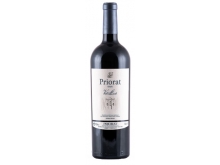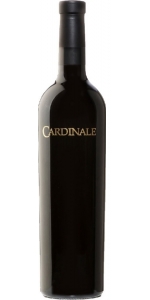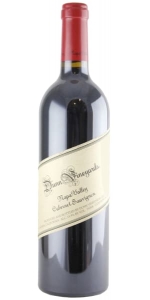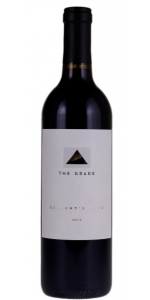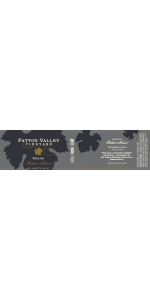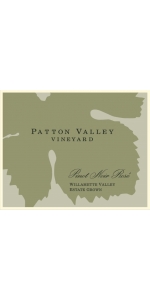Celler Vall Llach Idus 2019
6 bottles with free shipping for: $360.00
12 bottles with free shipping for: $660.00
| BUY MORE! SAVE MORE! | ||||||||||||||||||||
|
| Country: | Spain |
| Region: | Priorat |
| Winery: | Cellar Vall Llach |
| Grape Type: | Carignan |
| Vintage: | 2019 |
| Bottle Size: | 750 ml |
Celler Vall Llach Idus
Since its founding in the early 1990s by celebrated singer Lluís Llach and notary Enric Costa, Celler Vall Llach has committed itself to rigorous quality standards. Located in the tiny mountain town of Porrera in the D.O.Q. Priorat, the winery is now headed by Enric’s son Albert as winemaker, general manager and co-owner.
The magnificent century-old estate vineyards boast 60- to 90-year-old Cariñena and Garnacha vines as well as newer plantings of Garnacha, Cabernet Sauvignon, Merlot and Syrah that add complexity to Vall Llach’s range of widely acclaimed wines. Priorat’s notoriously stingy llicorella (fractured black slate) hillsides produce extremely low yields of intensely flavored grapes.
The Celler makes this wine from grapes from very old vines, some of which are centuries old, belonging to selected farms, owned by farmers who have been collaborating with us since our foundation. From the Cellar, we make a thorough follow-up of each of the production processes. And this collaboration with the farmers, who bring us inherited traditions and customs, allows Celler Vall Llach to identify this wine with the effort and uniqueness of the cultivation of these lands. Idus is a local wine. AGING The wine was transferred to 225 and 300 litre second wine barrels of light- and medium-toasted fine grained new French oak. The wine was moved once during the ageing period of 14 months
Review:
Made with Carignan and Garnacha, this deep-violet-colored wine has a bouquet of dark plum, purple fig, clove and lavender. It is smooth in the mouth, with flavors of black currant, blackberry, dark chocolate, anisette and violet. It offers bold acidity, plush tannins and a lengthy finish.
-Wine Enthusiast 95 Points
Focussing on quality over quantity, Celler Vall Llach has firmly embraced a small-is beautiful ethos of microproduction for its vineyards and "trossos".
Consistent with this philosophy, the celler has imposed a ceiling on production and growth in order never to lose the personal and thorough supervision exerted over each stage of the process of wine making.
All this, and the unique character of Priorat allow us to offer you wines that Vall Llach hopes you will find fascinating and exclusive
To the East of Priorat (Southern Catalunya), few kilometers from Coll Teixeta, we find Porrera, a historical Priorat municipality where Celler Vall Llach was created.
The township takes up 28,54 km² and spreads along the valley of the Cortiella River, which flows across the territory from East to West and finally runs into the Siurana River. The northern and western sectors are limited for La Serra del Molló. Practically the whole territory is covered with vineyards.
After the depopulation of La Garrantxa, Porrera is the only populated centre in the municipality.
You can arrive from Falset by T-740; from Reus by first taking N-420 (to Coll Teixeta) and later by TP-7041; from Cornudella de Montsant by taking C-242 (until Venta d'en Pubill) and then by TP-7402 to Porrera.
Porrera is a farming town but only a 40% of the land is cultivated. The rest are waste lands covered with brushwood and forests. The chief crops are vine, almond and hazelnut trees. There are some unused beads of lead and baryta and also some fountains of ferrous water.
The farming co-operative was founded in 1932.
Along the centuries Porrera earned itself the reputatio of 'the most rebellious city in Catalunya' but, History has also proved that the village has always fought for liberty.
Despite the continuous wars and fights that destroyed the village, Porrera has built and rebuilt its buildings and kept its noble and proud appearance. The sumptuous buildings, the wide streets and the rivers evoke its glorious past.
The most remarkable building in the Neoclassical parish church of Sant Joan Evangelista built between 1763 and 1711.
Visitors should not miss the hermitage of Sant Antoni Abad built in 1610 on top of a craggy hill, and also the route along the sundials spread all over the village.
Cardinale Napa Valley Cabernet Sauvignon is made from 91% Cabernet Sauvignon, 9% Merlot.
Super structured and with minerality to spare, this Cabernet Sauvignon offers a real presence on the palate from start to finish. Generous notes of dark chocolate balance beautifully with a blue and black fruit flavor explosion, finishing with a subtle whisper of rose petal.
Reviews:
- James Suckling 98 Points
-Jeb Dunnuck 98+ Points
Dunn Vineyards Napa Valley Cabernet Sauvignon is made from 100 percent Cabernet.
This Napa Valley wine is a blend of their Howell Mountain fruit and a small quantity of valley floor fruit that they purchase. This valley floor fruit contributes to the wine’s earlier approachability and softer tannic structure.
Review:
I loved the 2019 Cabernet Sauvignon Napa Valley, which I think is a step up over the 2018, although both 2019s show a much more elegant profile. Ripe currants, plums, roasted herbs, violets, and incense notes all shine in this medium to full-bodied, ripe, supple, layered beauty, which has fine tannins and a gorgeous finish. Enjoy bottles any time over the coming 15 years.
-Jeb Dunnuck 94 Points
The Grade Cabernet Sauvignon Serpent's Back Napa Valley is made from 100 percent Cabernet Sauvignon.
Review:
The 2019 Cabernet Sauvignon Serpent's Back shows a more aromatic, high-toned side of this site. Bright red/purplish berry fruit, pomegranate, cinnamon and sweet floral accents are all laced together. The Serpent's Back is the most refined of these three Cabernets, but it has plenty of Calistoga punch.
-- Antonio Galloni 95 Points
The Grade Cabernet Sauvignon Serpent's Back Napa Valley is made from 100 percent Cabernet Sauvignon.
Review:
The 2019 Cabernet Sauvignon Serpent's Back shows a more aromatic, high-toned side of this site. Bright red/purplish berry fruit, pomegranate, cinnamon and sweet floral accents are all laced together. The Serpent's Back is the most refined of these three Cabernets, but it has plenty of Calistoga punch.
-- Antonio Galloni 95 Points
Patton Valley Petillant Naturel Riesling is made from 100 percent Riesling.
Good friends and good wine make this funny world go ‘round, right? Without those friends letting us buy some of their precious Riesling, we couldn’t make this delicious wine. Even if we did have to beg. A little.
We are using some really great vineyard sites to make this wine, and they are as diverse as they are excellent. Preserving the inherent “riesling-ness” is as important here as making this sparkle, so we’ve been extra careful to be clean, true, and simple with this. Native yeast ferments and minimal handling with fastidious cleanliness make this an absolute natural wonder. A small dosage of organic sugar kicks off the bottle ferment to make it sparkle.
This smells like apples, pears, apricot, and the sea. Not kidding. The palate is fizzy, fun, and fresh with an appley bite and pear - almond lushness. All angles and elbows, the lees and sediment widen the palate with pleasing breadth.
VINEYARDS:
25% Norris McKinley, Ribbon Ridge AVA - LIVE
50% Windridge, Chehalem Mountains AVA - LIVE
25% Wascher, Dundee Hills AVA - USDA Organic
pH: 3.04
Patton Valley Rose is made from 100 percent Pinot Noir.
Its beautiful salmon-pink color hints at the enjoyment that awaits you. Alluring aromatics spill out of the glass, with scents of fresh-cut ripe strawberry, candied rose petal, cotton candy and bubble gum harmonizing together and inviting deeper inspection. In the mouth, the first sensation is one of volume and a cacophony of lush ripe fruit flavors, followed by a zingy, green apple acidity and a slight mouth-watering frizzante, the trademark of Patton Valley Rosé. One glass is never enough.
- back
Fonseca Vintage Port 1966 has been pulled from a Gentleman's cellar, all wines from this cellar have been purchased by the owner either from the importer or direct from winery. They stayed in his cellar until being moved to the Timeless Wines warehouse.
GRAPE
100% Arneis
POSITION
Hillside
EXPOSURE
Southwest
COLOR
Straw yellow with greenish reflections
NOSE
The bouquet is fruity with hints of chamomile and acacia
TASTE
Fresh elegant, fruity aromas with floral hints
TEMPERATURE
Ideal serving temperature is 8°/10°C.
ALCOHOL
12.5 % - 13%

